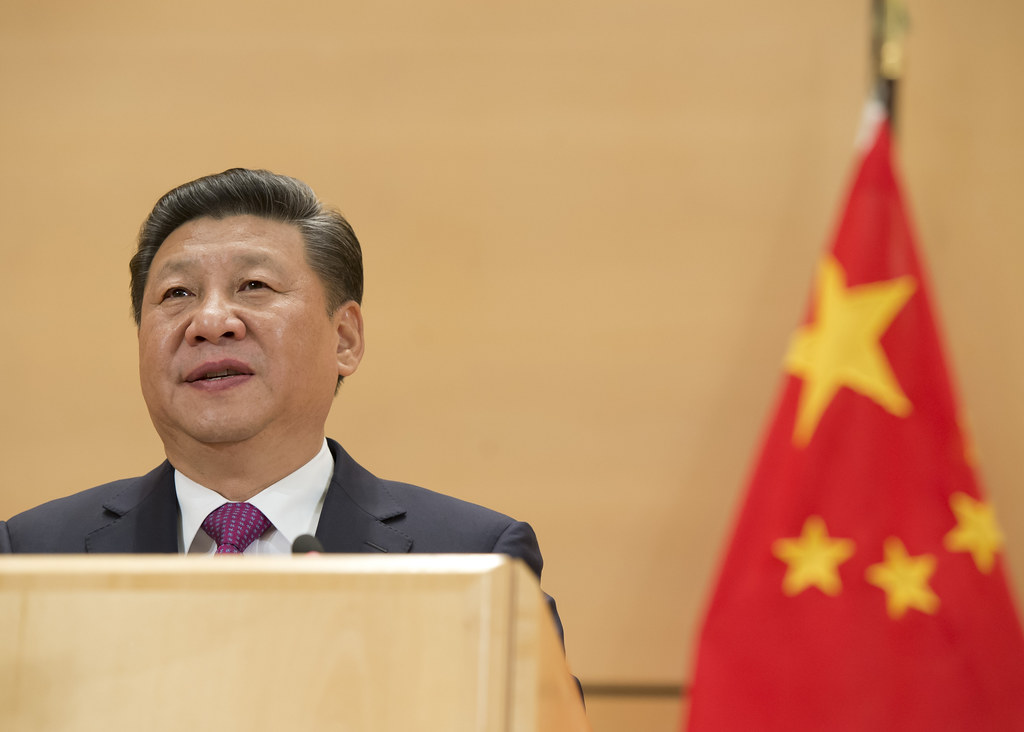
For years, China forbade women to have more than one child. Now, in a striking about-face, its male leaders are urging women to stay home and have babies.
At a meeting this week of the National Women’s Congress, President Xi Jinping set aside discussion of other issues – sexual harassment, gender violence and workplace discrimination – and instead called on women to create a “new trend of family” to help curb a rapidly aging population.
“We should actively foster a new type of marriage and childbearing culture,” Xi said at the gathering, held every five years by China’s Community Party. As reported by the New York Times, this year’s gathering marked the first instance in which no women occupy policymaking roles.
Earlier this year, China’s National Bureau of Statistics reported the first population drop since the 1960s. Fears over the declining birth rate are coupled with fears over the burgeoning number of elderly, as the Chinese Academy of Sciences predicts the pension system will run out of money by 2035. This pairing spells a grim future for China’s economy – seen globally as a manufacturing powerhouse – as experts say the trend is irrevocable.
The Chinese government has tried to sidestep the looming emergency by reversing the demographic crisis, using incentives such as monetary rewards and tax benefits to encourage more births. Still, it has found little success, as more women than ever are putting off having children.
“There is a desire to have a career in China and being a stay-home mother is never a goal,” Chinese economist Andy Xie told CNBC in April. “It doesn’t even appear on the radar for most women.”
At the Women’s Congress, Xi urged leaders to get it on women’s radar by guiding them “to play their unique role in carrying forward the traditional virtues of the Chinese nation.”
Xi made no mention of women at work, making it clear to many that the Communist Party is much more interested in keeping women at home. Some Chinese media outlets have cushioned this fact in its coverage of the meeting, with one China Daily headline reading: “Xi calls for fully leveraging the strength of women.” The article then noted that Xi called upon women to “contribute their wisdom and strength” to Chinese modernization.
Most Chinese women are unlikely to stay at home, at least not willingly. A survey by the Communist Youth League in 2020 found that 43.9 percent of surveyed women from age 18 to 26 said they either had no intention of getting married or were unsure if it would happen. The birth rate is closely tied to marriage rates because official policies make it hard for single women to have children, according to Reuters.
For many, Xi’s mission of encouraging more births raises alarm. Fubing Su, a political science professor at Vassar College, referenced China’s prior one-child policy that lasted until 2016, noting the government’s enforcement of fines, forced abortions and sterilizations to keep the population at bay.
“If the party could sacrifice women’s body and birth rights for its one-child policy, they could impose their will on women again,” he told The New York Times.
While Xi’s current approach to the demographic crisis – marked by propaganda such as “good stories about family traditions” – seems more passive than his enforcement of the one-child policy, only time will tell if he decides to take more drastic measures.



